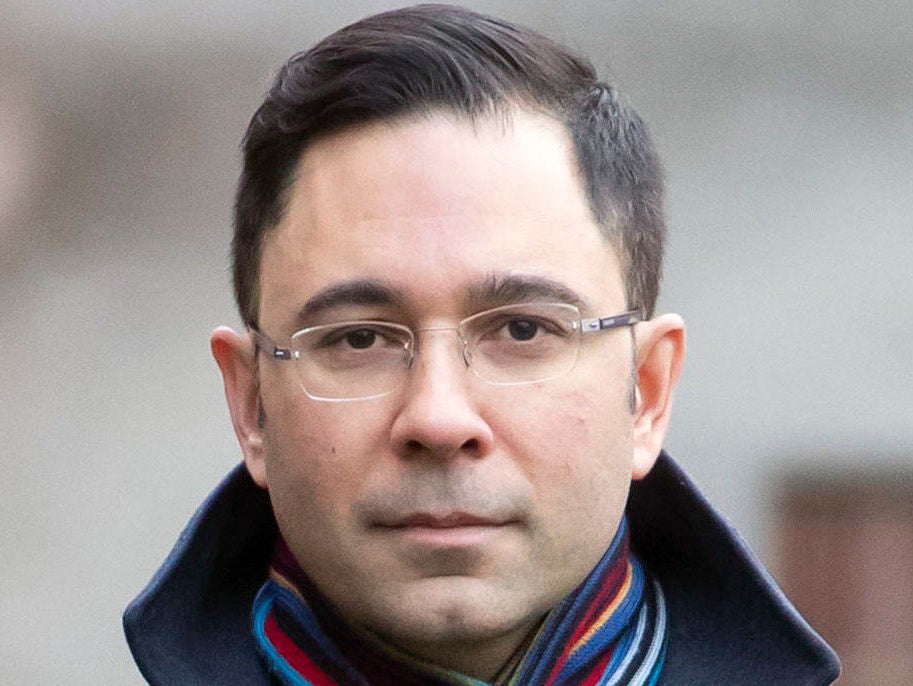
A senior BBC executive has been cleared of breaking the law over by naming a victim of the Rotherham sex abuse scandal in a live radio broadcast.
BBC Asian Network head of news Arif Ansari, 44, was found not guilty of breaching the Sexual Offences (Amendment) Act 1992, which entitles all complainants of sexual offences to lifelong anonymity.
He was cleared today following a two-day trial at Sheffield Magistrates’ Court.
BBC reporter Rickin Majithia used the rape victim’s real name in a broadcast from outside Sheffield Crown Court in February last year. Ansari was producing the programme at the time and had checked the script.
Majithia told the court yesterday that he had wrongly believed the woman had been using her real name when speaking to him out of court and that the name read out in court had been a pseudonym.
Ansari (pictured) told the court today: “I trusted his journalism. He was a good journalist. This was not a complex legal issue. This is as basic as it gets. This is what journalists are taught at journalism school.”
He said: “It just struck me as 100 per cent accurate. Rickin was a senior journalist, one of my senior reporters.
“He had a background, professional relationship with the victim in question. I didn’t. I had never met her. I was in London.
“Furthermore, I knew that he knew that he could not name her, use her real name. Put all these factors together, it did not occur to me that this could be wrong.”
The editor added: “I trusted my reporter and the reason I sent him to Sheffield was to make sure he got it right.”
Ansari told the district judge about conversations he had with Majithia about legal aspects of the case before he travelled to Sheffield.
He said his main legal concerns were over the reporter’s plan to interview the woman and whether any report would prejudice a future, linked trial.
Ansari said: “The fact we couldn’t name the victim is just straightforward and very obvious. That wasn’t my concern.”
Majithia told the court that the trial in Sheffield was the first court case he had ever covered as a journalist.
Ansari said he did not know this until his reporter returned to London “very badly shaken” and “in a really bad way” after the mistake became clear.
“I remember being somewhat shocked that he hadn’t previously told me that,” he told the court.
He agreed that he had described Majithia as a “bit of a loose cannon” but said this referred to him not always communicating about stories he was researching.
Ansari – who was BBC North West political editor for seven years – said the first he knew about the mistake was when Majithia rang him ten minutes after his live broadcast.
He said: “He was in a state of panic – ‘I’ve got the name wrong’. He just said ‘it wasn’t a pseudonym, that was her real name’.”
The woman who was named in the report sat through the journalist’s trial and left at the end with a man, believed to be her father, who shouted: “You were lucky she wasn’t found dead, mate.”
Majithia said in a statement after the verdict that he was relieved of his reporting duties within days of the mistake and has since suffered health issues.
“I am truly sorry for happened and will remain so for the rest of my life,” he said, adding: “I want to repeat my deepest regret for this mistake to the victim and her family.
“I had previously reported on how much they had suffered at the hands of a grooming gang. It pains me to know that this mistake has caused further hurt.
“I travelled from London to Sheffield at the invitation of the victim with the sole intention of helping her to tell her story.
“Unfortunately I was unable to attend the first day of the trial and I arrived in Sheffield late at night after a fifteen hour work day on 5 February 2018.
“The mistake occurred the following day while I was in a state of extreme exhaustion and confusion.
“I had never covered a criminal trial before and wrongly believed that the victim was being addressed by a pseudonym in court because she was speaking from behind a screen to protect her identity and because she had previously communicated with me by a different name.
“I didn’t know that pseudonyms are not usually used in such trials.
“I had my script checked by my manager, but unfortunately the error wasn’t picked up and the script was approved.
“The mistake happened without malice or intent. Nevertheless, it should not have happened at all.”
Picture: Danny Lawson/PA Wire
Email pged@pressgazette.co.uk to point out mistakes, provide story tips or send in a letter for publication on our "Letters Page" blog

